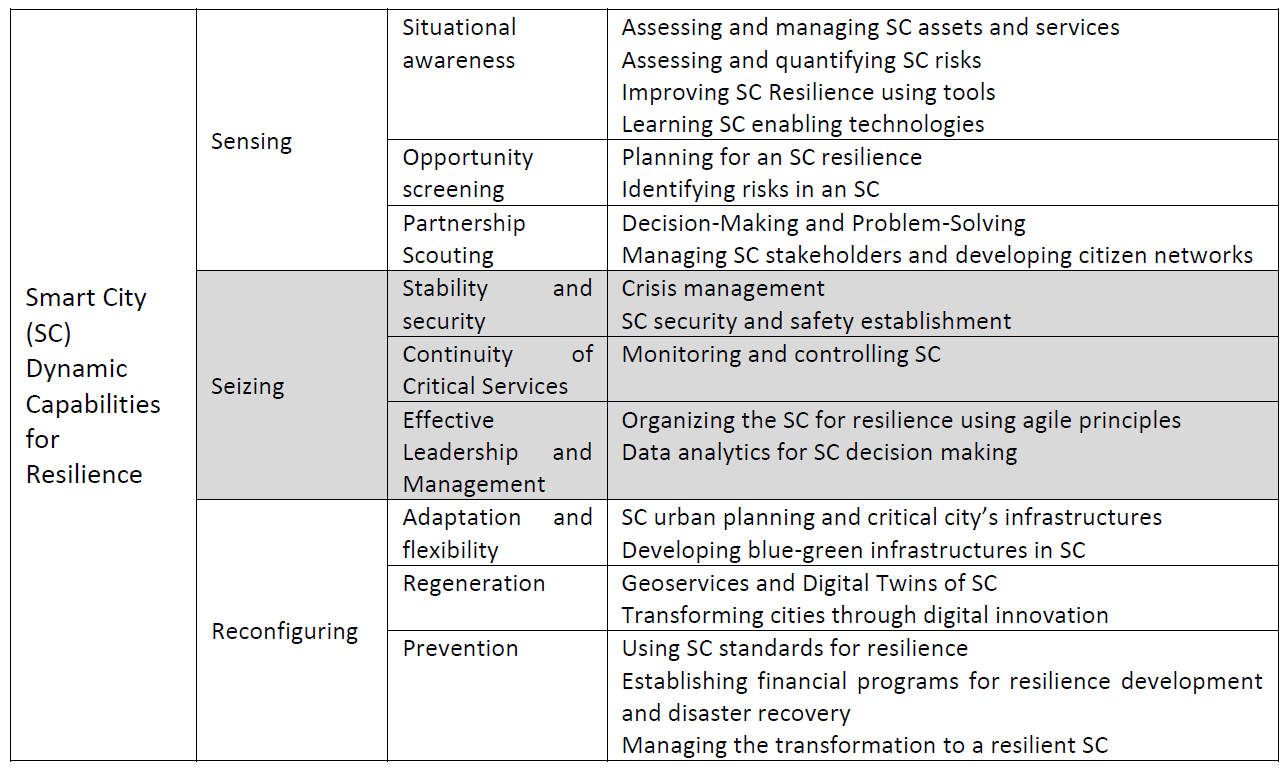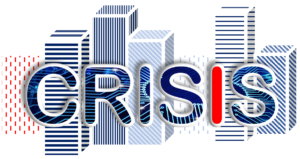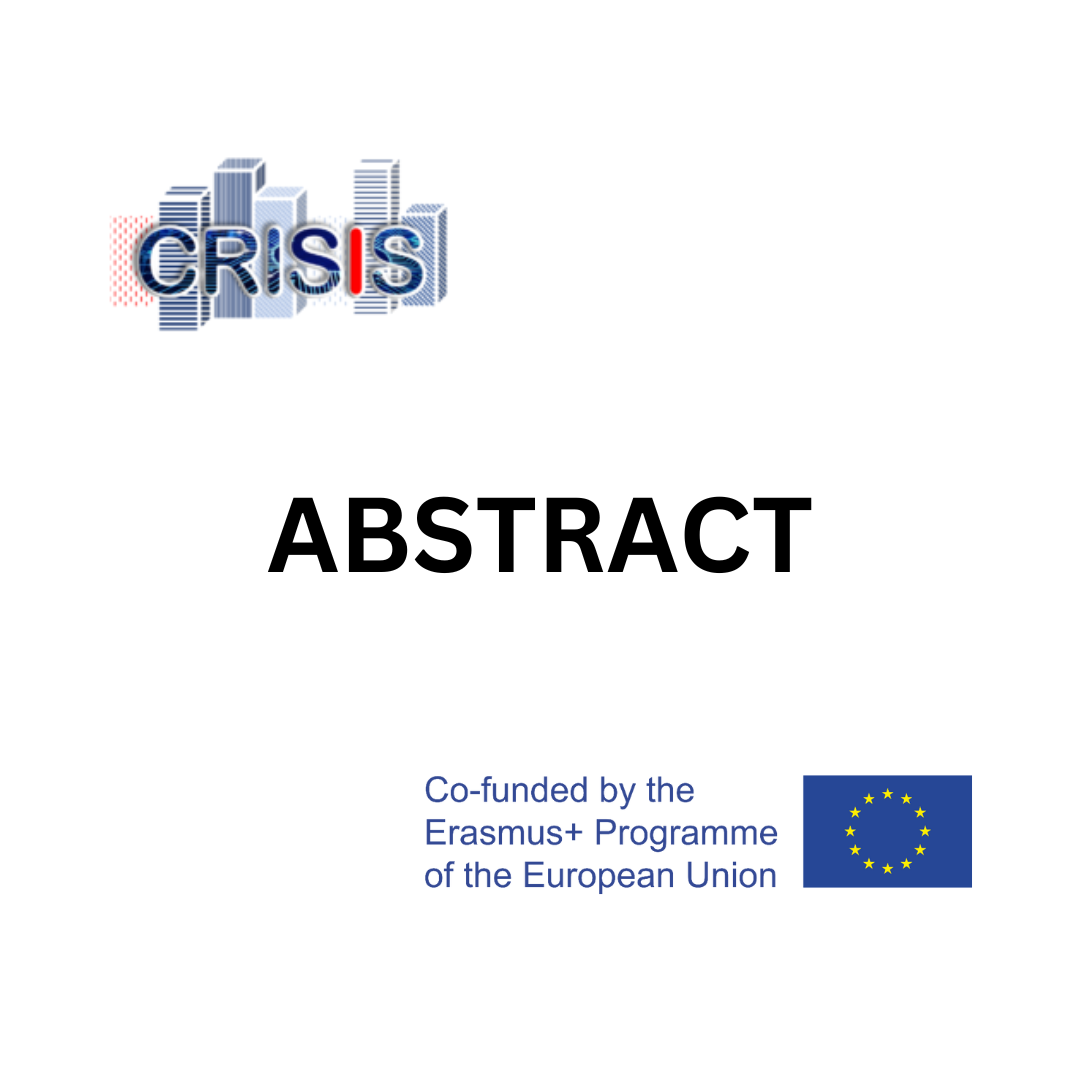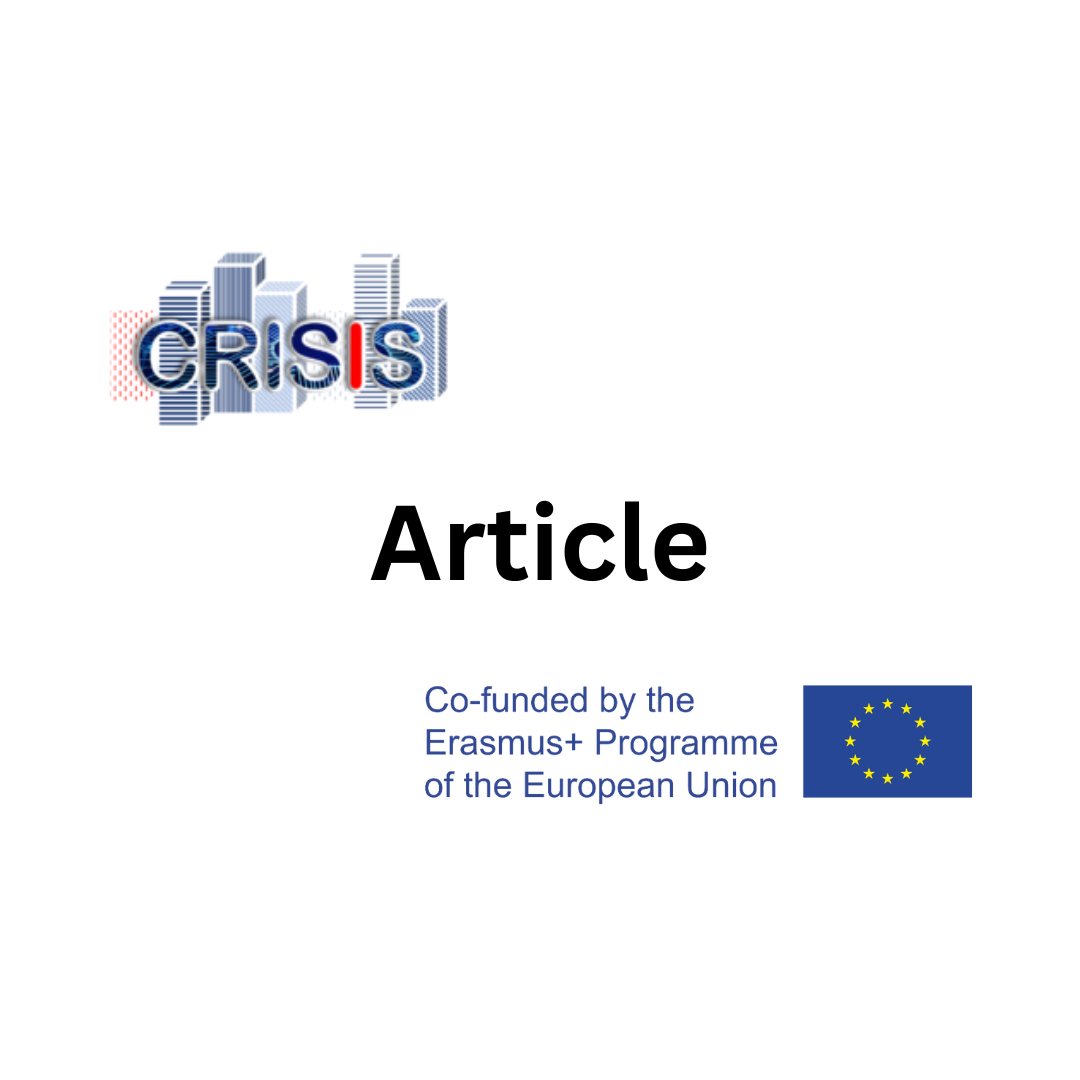WP1 – Short Paper
The dynamic capabilities of resilient smart cities
The digitization of the economy associated with demographic changes and successive global crises has been putting pressure on cities to become increasingly sustainable and resilient, using their resources intelligently and promoting the well-being of citizens. In an environment of continuous change with substantial economic, environmental, social, and infrastructure impacts, those responsible for defining resilience advancement initiatives – Smart City Chief Resilience Officers (SCROs) – need to develop complex competencies (knowledge, skills, and attitudes) and constantly adjust them to the new challenges that cities face.
The resilience of cities often requires the collaboration of diverse partners in innovation initiatives, including companies, NGOs, civic organizations, city government and others, in an innovation ecosystem configuration. The orchestration of initiatives in these ecosystems requires the city to acquire capabilities to sense, seize, and reconfigure resilience innovation opportunities in the economic, social, environmental, and infrastructure areas. The expansion of the lens of dynamic capabilities to include the notion of an urban organization with dynamic capabilities for resilience allows the assessment of the city’s ability to integrate, build, and reconfigure internal and external competencies to address its resilience challenges. The table below shows the CRISIS framework integrating the dynamic capabilities of the city with the competencies SCCROs must have to contribute effectively leverage the resilience of smart cities.




